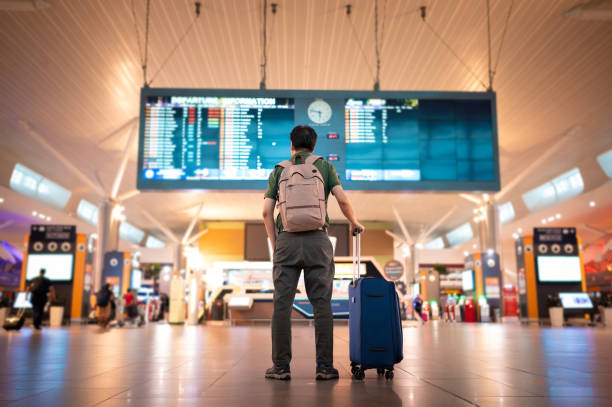Traveling can be one of the most rewarding experiences, providing opportunities for adventure, cultural exchange, and personal growth. However, amidst the excitement, it’s essential to prioritize your safety and security. With some planning and awareness, you can significantly reduce the risks associated with travel. Here’s a comprehensive guide on how to stay safe while exploring new destinations.
Typical Security and Safety Concerns
1. Conduct Your Research
Before you embark on your journey, take time to research your destination thoroughly. Understanding the local culture, customs, and potential risks can help you navigate your trip more safely.
- Read Traveler Reviews: Websites like TripAdvisor or Lonely Planet can provide insights into the safest neighborhoods for accommodation and activities.
- Consult Locals: If possible, engage with locals online or in person to get firsthand advice about safe areas and common scams to watch for.
2. Avoid Drawing Attention
One of the simplest yet most effective ways to enhance your safety is to blend in with the locals.
- Dress Appropriately: Wearing inconspicuous clothing can help you avoid looking like a tourist. Research the local dress code to ensure you fit in.
- Be Mindful of Your Belongings: Keep valuables like cameras and jewelry discreet. Consider using anti-theft bags or money belts that are less accessible to pickpockets.
- Navigating Safely: If you need to consult a map, do so discreetly. Instead of unfolding a large map in public, consider using a navigation app on your phone.
3. Create Copies of Your Important Documents
Losing important documents while traveling can be a nightmare. To mitigate this risk, take the following precautions:
- Make Multiple Copies: Photocopy your passport, driver’s license, and credit cards. Keep these copies in a separate location from the originals.
- Digital Backups: Save scanned copies of your documents in a secure online location (like Google Drive or Dropbox) that you can access from anywhere.
- Emergency Contacts: Have a list of important contacts, including your country’s embassy, local emergency numbers, and contacts back home.
4. Keep in Contact with Family and Friends
Staying connected with loved ones while traveling is crucial for your safety.
- Set Communication Expectations: Before your trip, let family and friends know how often they can expect updates from you. This could be daily check-ins or messages whenever you reach a new destination.
- Share Your Itinerary: Provide your travel itinerary to someone you trust. Include details about where you’ll be staying and any planned activities.
5. Be Cautious of Public Wi-Fi
While convenient, public Wi-Fi networks can pose significant security risks.
- Use a VPN: A Virtual Private Network (VPN) encrypts your internet connection, making it safer to browse and access sensitive information. This is especially important when using public Wi-Fi in cafes or airports.
- Avoid Sensitive Transactions: Try not to access banking information or make purchases when connected to public networks. If necessary, use your mobile data for these transactions instead.
6. Secure Your Hotel Room
Even in well-reviewed hotels, it’s wise to take additional precautions to secure your room.
- Lock Up: Always secure the door and windows, and use the deadbolt if available. Consider using a door jammer for extra security.
- Create the Illusion of Occupancy: When you leave your room, hang a “Do Not Disturb” sign on the door and draw the curtains. This can deter potential intruders.
- Verify Visitors: If someone knocks on your door claiming to be hotel staff, don’t let them in without verification. Call the front desk to confirm their identity.
7. Stay Aware of Your Surroundings
Being aware of your environment can significantly enhance your safety while traveling.
- Trust Your Instincts: If something feels off, trust your gut. It’s better to be cautious than to ignore potential danger.
- Stay Alert in Crowded Places: Be particularly vigilant in crowded areas like markets, tourist attractions, and public transportation. These are prime spots for pickpockets and scams.
8. Know Emergency Procedures
Before you travel, familiarize yourself with local emergency procedures.
- Emergency Numbers: Know the local emergency contact numbers for police, ambulance, and fire services.
- Locate Nearest Embassies: Identify where your country’s embassy or consulate is located in case you need assistance.
Final Thoughts
Traveling can be an enriching experience filled with adventure and discovery. However, it’s essential to take proactive measures to ensure your safety. The tips outlined above are just a starting point.
When you join my Mastermind Travel Hacking Course, I’ll share additional insights from my personal experiences, including how to avoid common travel scams like the mustard scam and the “tuk-tuk” scam. By equipping yourself with knowledge and staying vigilant, you can fully enjoy your travels while minimizing risks. Safe travels!



